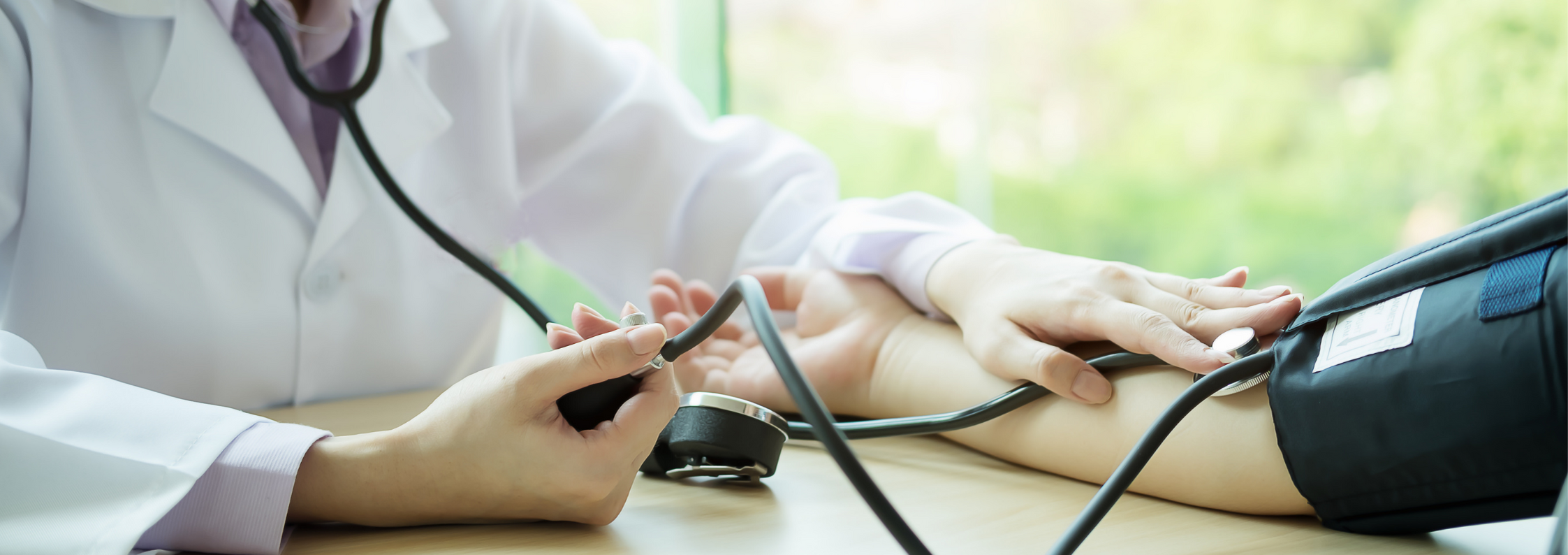Low Blood Pressure – Symptoms, Causes And Treatments
As February is National Heart Health Month – as declared by the British Heart Foundation – it’s the perfect time to raise your self-care awareness and to check for any heart issues such as low blood pressure. If you have concerns about your heart health, it’s important to seek medical advice urgently.
Blood pressure is the measurement of pressure in the arteries during the heartbeat’s active and resting phases, which naturally fluctuates throughout the day. Low blood pressure (hypotension) is a reading of less than 90/60 (systolic/diastolic) on a blood pressure monitor. Optimal blood pressure is less than 120/80.
If you’re generally healthy, hypotension symptoms do not tend to cause any problems. However, some people may experience dizziness and fainting. In extreme cases it can be life threatening.
If your blood pressure is low and you are experiencing symptoms, it’s important to find out what’s causing this so that it can be treated.
Low Blood Pressure Symptoms
Some people with low blood pressure have no symptoms. Others may have symptoms such as:
- Nausea
- Fatigue
- Dizziness or light headedness
- Fainting
- Dehydration
- Blurred vision
- Pale skin
- Inability to concentrate
In cases of extreme low blood pressure, you can lose consciousness or go into shock. Symptoms may also include:
- Rapid, shallow breathing
- Weak and rapid pulse
- Cold, clammy skin
- State of confusion
If your blood pressure severely dips, your body will not receive enough oxygen to enable it to carry out its normal functions. The decrease in oxygen can result in impaired functioning of the heart and brain, and also cause breathing difficulties.
Low Blood Pressure Causes
Causes of hypotension can range from a temporary issue like dehydration to serious medical conditions. Although it can occur in anyone, there are some factors that may make you more prone to having it.
Blood pressure is generally at its lowest at night, and peaks on waking. Throughout the day, your physical condition and body position, along with your breathing rhythm and stress levels, influence your blood pressure.
Some people have naturally low blood pressure due to genetic factors. Others develop it with age. Physical health, diet and pregnancy can also impact on hypotension.
Postural hypotension, which occurs when standing up suddenly, can happen to anyone. Being dehydrated, extremely hungry or overly fatigued can quickly bring it on. Elderly people who have high blood pressure or autonomic nervous system dysfunction are commonly affected with postural hypotension. After consuming a large meal that contains a lot of carbohydrates, dizziness can occur due to blood pooling into the vessels of the stomach and intestines.
Some other factors that can increase the risk of low blood pressure:
- Certain medications (such as alpha-blockers, antidepressants, erectile dysfunction drugs)
- Certain medical conditions (such as diabetes, hypothyroidism, Parkinson’s disease, liver disease, some heart conditions)
- Severe allergic reaction (anaphylaxis)
- Septicaemia
- Loss of blood from bleeding
- Severe dehydration from vomiting, diarrhoea or fever
- A reaction to alcohol or medication
When blood pressure drops suddenly and/or significantly, or is accompanied by symptoms, your body is signalling that there is an underlying problem. Seek cardiovascular care without delay.
Low Blood Pressure Treatments
Understanding what causes low blood pressure is helpful for determining the best course of treatment.
A medical practitioner may adjust the dosage of an existing medication or recommend a medication, such as fludrocortisone or midodrine, to increase blood pressure.
You can take active steps to minimise the risk of low blood pressure by:
- Drinking more water throughout the day
- Avoiding alcohol
- Eating nutrient-rich and high sodium foods
- Drinking a daily glass of tomato juice or a sports drink
Frequently moving the legs to stimulate blood flow, and wearing compression socks that extend to the thighs is also recommended.
Occasional bouts of dizziness or light headedness may be the result of mild dehydration. However, if your blood pressure is consistently low, but you feel fine, you will likely be monitored during routine examinations. Keep a record of your symptoms – when they occur and what you’re doing at the time – and update your medical practitioner at your next appointment.
Our Cardiology Services
At Phoenix Hospital Group, we offer a number of diagnostic testing methods to assess the health of your heart, including a 24 hour blood pressure monitor which measures your blood pressure as you go about your daily activities. If any problems are discovered, you will be seamlessly referred for appropriate treatment.
To book a consultation with a specialist, please call:
London: 0207 079 2100
Chelmsford: 01245 801234
Or, you can email us at: appointments@phoenixhospitalgroup.com



